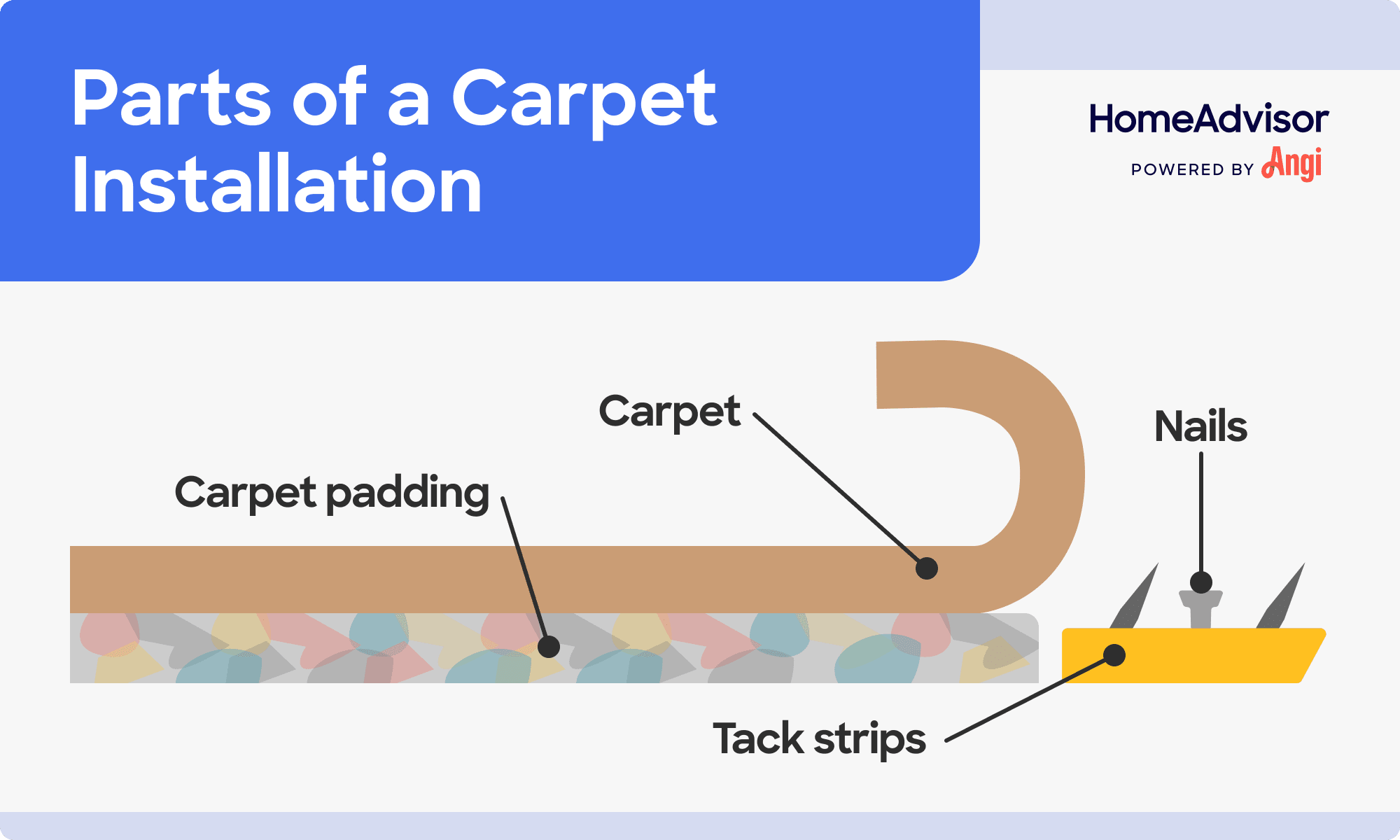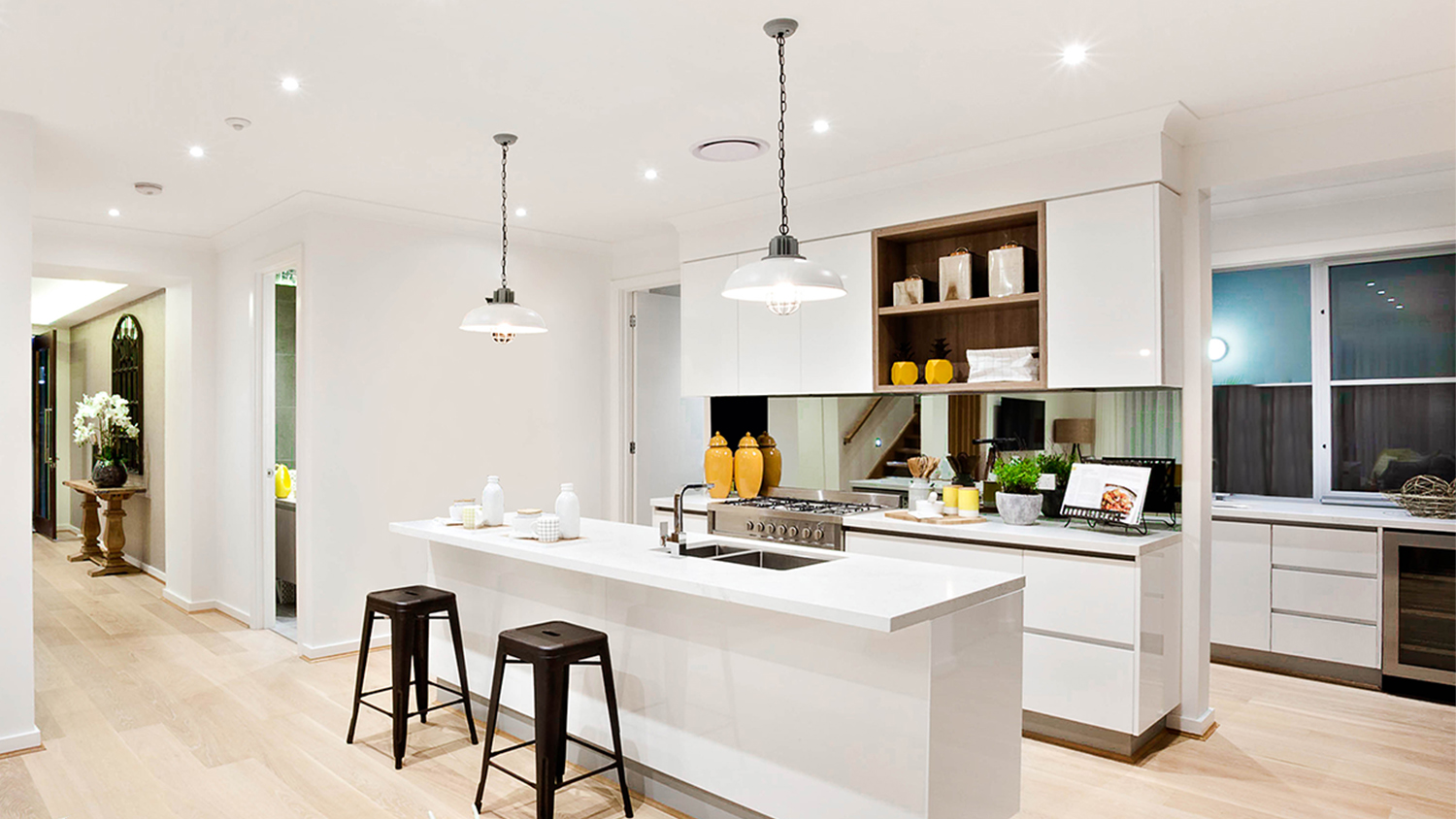
Use this guide to budget for vinyl flooring installation, exploring how factors such as the space size, flooring type, and labor rates affect your total bill.
This project can cost anywhere from $70 to $1,600, so take a look at what could affect this price and get a quote from a pro.


Carpet removal costs between $1.10 and $5.10 per square foot, with most homeowners spending around $300 per project.
Costs vary depending on location, carpet quality, and whether furniture needs to be moved.
Removing old carpet readies your floors for new installations and can boost your home's value.
Hiring a professional ensures efficient and safe removal, saving time and protecting your subfloor from damage.
This article was updated using automation technology and thoroughly reviewed for accuracy by HomeAdvisor Editor Ryan Noonan.
On average, homeowners spend around $280 to remove carpet, with costs typically ranging from $120 to $720 depending on the project's size. Carpet removal prices usually fall between $1.10 and $5.10 per square foot, influenced by factors like your location, the area’s size, and the carpet's quality.
Budgeting for carpet removal is important, especially if you plan to hire a professional to ensure efficient and safe removal. Since carpets generally last about 10 years, knowing the costs can help you plan your flooring project effectively.
Most carpet removal professionals charge between $1.10 and $5.10 per square foot to remove carpet from your home, though rates can be as low as $0.60 per square foot. Factors like the type of carpet and its installation method can influence the overall cost.
Removing a carpet pad costs about $0.60 to $1.60 per square foot, and prices may increase if furniture needs to be moved. This cost typically includes labor for removing both the carpet and pad and disposal fees.
Carpeted stairs can be more challenging to work with. Quotes for stair carpet removal may range from $7.50 to $10.50 per step, and costs can vary from $2.10 to $21 per step. Since the average step is 2 square feet, this generally aligns with the cost per square foot to remove carpet. Oddly shaped steps, however, may fetch a higher per-step price.
Wall-to-wall carpet removal costs around $0.60 to $5.10 per square foot. For a 12-by-12-foot room, that’s approximately $140 to $290. It’ll take most contractors roughly two to four hours for a job of this size.
Basement carpet removal costs are similar to other carpet removal costs, about $1.10 to $5.10 per square foot. However, because basements are more prone to mold, you may also need to budget for mold removal before installing the new carpet.
Removing glued-down carpet usually costs more than standard carpet removal, averaging around $3.10 to $5.10 per square foot. Since glued-down carpet requires more effort to remove, contractors must cut the carpet and use specialized tools to scrape off the glue residue, increasing labor costs.
Remember an important distinction when calculating the carpet removal cost: removal versus disposal.
If you plan to remove the carpet yourself and have the necessary tools, you'll just need to budget for disposal costs, typically around $0.50 to $0.60 per square foot. For a 12-by-12-foot room, that's about $70 to $80, compared to the $140 to $290 you'd pay for professional removal and disposal. Alternatively, you can hire a local junk removal service to handle disposal for a flat fee of $80 to $160.
A note about recycling: Carpet recycling costs can range from $0.06 to $0.26 per square foot. Most carpet fibers can be recycled to create new products, but minimal infrastructure exists to handle this process. The nonprofit organization Carpet America Recovery Effort (CARE) has a database of carpet recyclers. The price varies based on your location. We recommend asking your removal company about their waste processing policy; some may reuse or resell your old flooring.

If you're installing new carpet or another type of flooring, the price may already include removing your existing carpet. Ask your contractor if this labor is included in your quote.
If you’re installing hardwood flooring where you currently have carpet, most pros will include the cost of carpet removal in the installation price. Expect to spend about $6.20 to $12.20 per square foot, including labor and materials.
The cost to install laminate flooring runs from $3.10 to $8.10 per square foot, including material and labor. Most pros will include the cost of carpet removal in their quote.
The average cost to install new carpet is about $1,800, with prices ranging between $3.60 and $11.10 per square foot. Often, the price of new carpet installation includes the removal of old carpet, but expect your prices to be on the higher end of this range.
Carpet, hardwood, and laminate flooring scratch the surface of what you can have installed. Floor installation companies may charge anywhere from $1.10 to $15.10 per square foot for installation alone, while materials can go from $0.60 to $14.10 or more per square foot.
Here’s what you can expect to pay for various types of flooring, fully installed:
Vinyl flooring price: $2.10–$7.10 per square foot
Linoleum flooring cost: $3.10–$5.10 per square foot
Ceramic tile flooring installation: $3.10–$5.10 per square foot
Porcelain tile flooring installation: $13.10–$65.10 per square foot
Stone flooring price: $4.10–$32.10 per square foot
Cork flooring cost: $5.10–$14.10 per square foot
Concrete flooring installation cost: $2.10–$24.10 per square foot
Marble flooring price: $5.10–$25.10 per square foot
Additional factors can affect the overall cost to remove carpet, including the room size and shape, the carpet location, any necessary repair work, and the furniture on top of the carpet.
If you're having the carpet removed from multiple rooms, you may be able to get a lower rate because of the volume of work. On the other hand, an oddly shaped room or staircase may complicate the carpet removal process, increasing overall project costs.
While carpet removal prices are pretty standard throughout your home, you may pay a little more for carpeted stairs, carpet in the basement, or carpet in hard-to-reach locations. For example, an attic without AC may justify a higher labor rate from the carpet removal company.
Geographic location can also impact the overall cost of carpet removal. Larger cities typically charge higher labor rates and have more expensive carpet disposal fees. The cost generally fluctuates with the local cost of living.
Whenever you replace flooring, you should inspect the subfloor for damage. The cost to replace subflooring ranges from $3.10 to $10.10 per square foot, on top of other flooring installation costs.
You may not need to remove the carpet at all. Before installing new carpet, work with a contractor to determine if your existing carpet is salvageable. Repairing carpet costs around $210 per project.
When having your carpet removed, expect to pay around $0.25 to $0.30 per square foot of furniture that needs to be shifted between rooms. A pro might move a few small, light items for free, but you can save on the overall cost by moving the furniture ahead of time yourself.
A professional carpet removal company typically charges around $1.10 to $1.60 per square foot, which includes labor, waste removal, and cleanup. While doing it yourself might save money on labor costs, you'll need to handle heavy lifting, secure proper disposal, and possibly purchase tools like pliers, a hammer, and a pry bar, which can add up. DIY carpet removal is time-consuming and strenuous, and you'll need a suitable vehicle to transport the waste. There's also the risk of damaging your subfloor or exposing yourself to dust and allergens. Hiring a professional ensures the job is done efficiently and safely, saving you time and preventing potential issues.
If you'd rather leave carpet removal to the experts, consider hiring a local flooring pro to handle the job. Be sure to request an itemized quote that includes:
Carpet removal costs
Price per stair (if applicable)
Fees for moving furniture
Carpet disposal charges
Cleanup costs
It's wise to compare quotes from at least three different companies before making your decision.
No place is more important than your home, which is why HomeAdvisor connects homeowners with local pros to transform their houses into homes they love. To help homeowners prepare for their next project, HomeAdvisor provides readers with accurate cost data and follows strict editorial guidelines. After a project is complete, we survey real customers about the costs to develop the pricing data you see, so you can make the best decisions for you and your home. We pair this data with research from reputable sources, including the U.S. Bureau of Labor Statistics, academic journals, market studies, and interviews with industry experts—all to ensure our prices reflect real-world projects.
From average costs to expert advice, get all the answers you need to get your job done.

Use this guide to budget for vinyl flooring installation, exploring how factors such as the space size, flooring type, and labor rates affect your total bill.

Budget for the cost to refinish hardwood floors based on factors such as square footage, wood type, labor, refinishing method, prep, task type, and more.

Sagging floor repair costs vary based on materials and severity of damage. Learn to budget for subfloor repairs and water damage restoration.

Laminate flooring installation costs depend on plank style, finish, thickness, and room size. Explore all the cost factors before starting this project.

This guide breaks down the cost to repair laminate flooring. Major cost factors include material quality, surface area, and the type of damage.

Wondering who installs vinyl flooring? Learn whether to hire flooring companies or contractors, what to expect, and costs per square foot